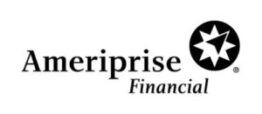
ON Equity Sales Company Inc. (ONESCO) a securities broker dealer headquartered in Cincinnati Ohio has been censured and fined $275,000.00 by Financial Industry Regulatory Authority (FINRA) supported by findings that ONESCO failed to supervise sales of variable annuities resulting in a stockbroker having made unsuitable recommendations to customers of the firm. Letter of Acceptance Waiver and Consent No. 2018059035703 (Apr. 30, 2021).
According to the AWC, from March of 2014 to September of 2017, an unsuitable investment strategy had been recommended to customers by one of ONESCO’s stockbrokers. The AWC stated that this stockbroker was touted as the company’s premier producer as he sold the most annuities at the firm. At least 76 of his customers were persuaded by him to invest in the strategy.
As part of the strategy, customers were advised by the stockbroker to liquidate their retirement accounts and to use the proceeds for variable annuities purchases. The customers were then told to liquidate portions of those annuities so that they could accrue cash value in whole life insurance policies. FINRA indicated that the customers’ circumstances differed from each other but the stockbroker’s recommendations were consistent with all of them. They were told to buy the same annuities and riders. They were told to allocate their accounts in the same matter.
FINRA indicated that the recommendations were unsuitable given each customer’s risk tolerance, liquidity needs, investment horizon and overall investment profile.
FINRA specified that the strategy consisted of three key steps. The first step involved the liquidation of retirement savings. This often involved customers liquidating individual retirement accounts and other tax-qualified accounts including 401(k)s. By following this advice, customers lost important benefits including asset protection and access to investment advice.
The second step entailed investors buying variable annuities with the funds that they obtained through liquidating their retirement accounts. The same variable annuity share class—the X share— was positioned to his customers. This annuity provided customers with a cash bonus upon investing. The annuities had the longest surrender periods and were the most expensive of the annuity share classes. Customers were also told to add a guaranteed minimum withdrawal benefit rider which was designed to provide lifetime payments to them. Both the annuity itself and the rider were not suitable for those of the stockbroker’s customers who intended to tap into their annuities in the short term.
The final stage of the process entailed customers taking premature withdrawals from their annuities. This caused customers to lose out on annuity benefits. It also caused customers to face surrender charges. The stockbroker advised customers to take withdrawals from their annuities to pay for expenses and home purchases, or to pay for whole life insurance policies where they could take loans from those policies.
Customers collectively paid $371,395.00 in surrender charges by committing to the recommendations. Some customers incurred surrender charges just days after purchasing their annuities.
ONESCO had procedures that called for its supervisors to perform suitability reviews on annuity transactions. The procedures outlined certain red flags for supervisors to investigate. This included when customers were under 59 ½ years old, when qualified retirement account funds were used for annuity purchases, when a customer would incur a surrender charge, or when a customer would place a large amount of their net worth in the product.
FINRA stated that ONESCO failed to educate its supervisors on how to determine if annuity sales were problematic. The firm did not put any system in place to monitor trends of problematic transactions. Unknowing supervisors did not detect or address problems with the stockbroker’s actions. ONESCO did not identify that the stockbroker was continuously telling customers to take premature withdrawals from their annuities. The company did not supervise the stockbroker’s recommendations.
All of the 76 customers’ transactions were approved through ONESCO. The company took in $732,634.00 in commissions for selling the annuities to customers.
FINRA also noted that variable annuity issuers contacted ONESCO on three occasions to communicate their concerns about the surrender charges that the stockbroker’s customers faced. There was no reasonable investigation undertaken by ONESCO in response. As an example, ONESCO was prompted to explain to the issuers why the stockbroker was making recommendations for the early withdrawals. ONESCO took the stockbroker’s explanation at face value. The company never contacted any of the 76 customers.
In another example, an issuer probed ONESCO about the abnormal rate of withdrawals that had been taken from their annuities by the stockbroker’s customers. ONESCO never investigated the matter. They never asked for the stockbroker to explain himself. The issuer went as far as terminating the stockbroker’s agent registration. ONESCO did not look into why the issuer took this step.
FINRA found that ONESCO’s failure to supervise the stockbroker paved the way for him to continue making unsuitable recommendations to customers. ONESCO violated FINRA Rules 2010, 3110, 2330 and National Association of Securities Dealers (NASD) Rule 3010.








